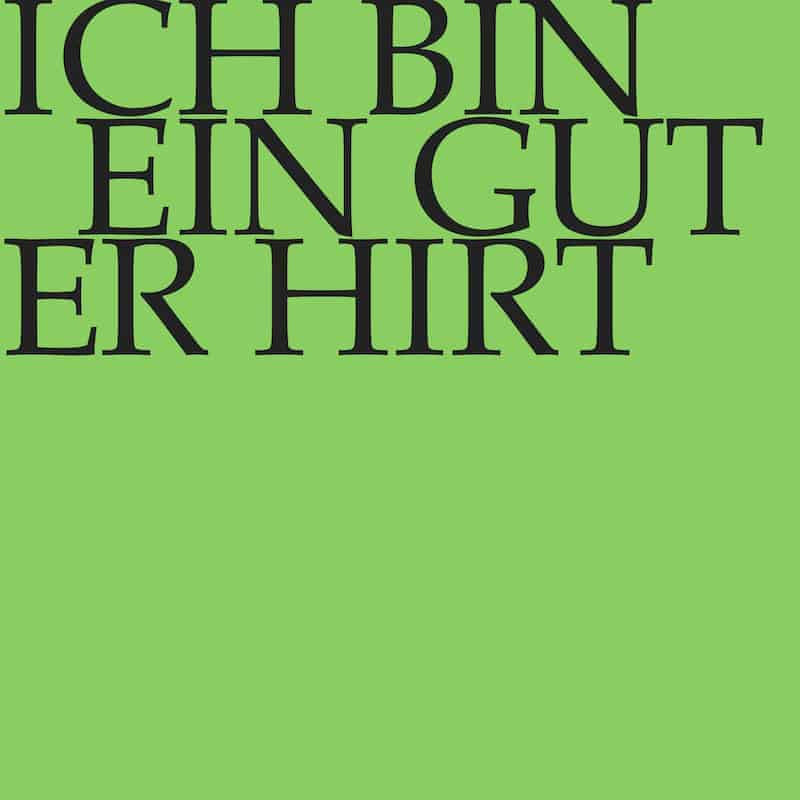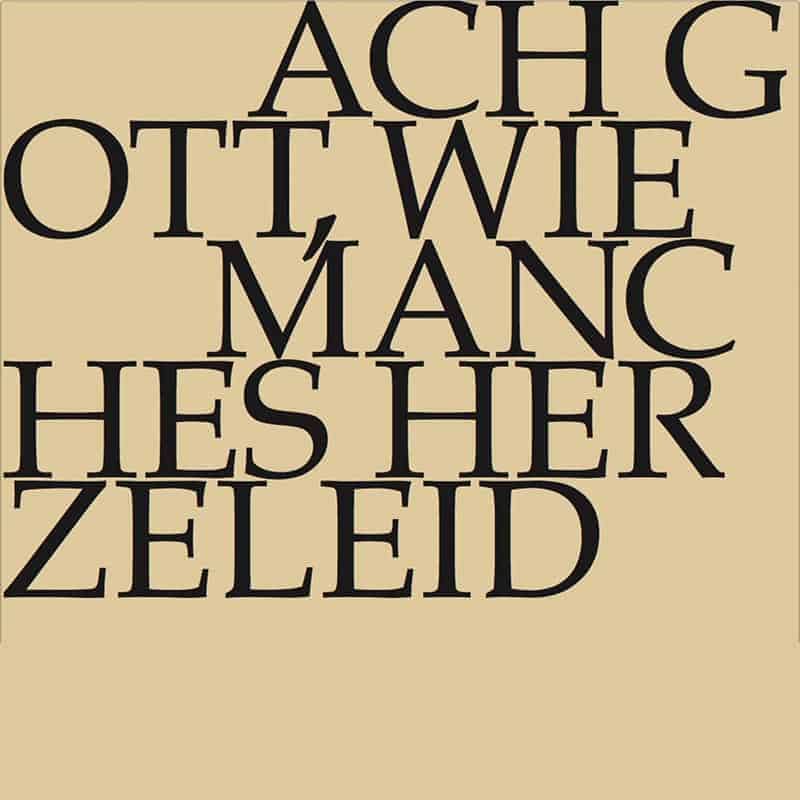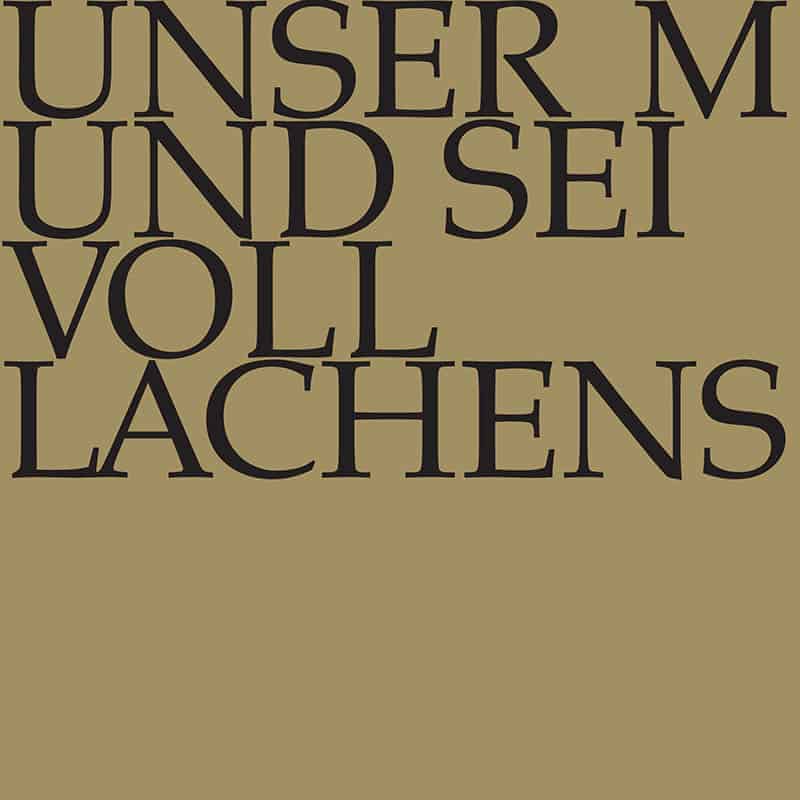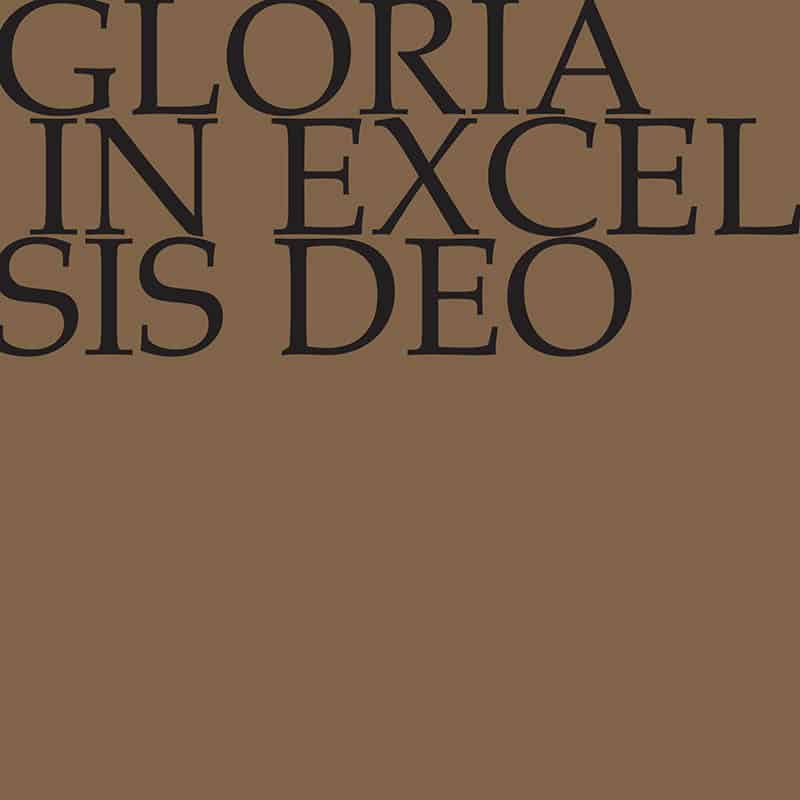(Ah God, how oft a heartfelt grief) for the Second Sunday after Epiphany, for soprano, alto, tenor and bass, vocal ensemble, trombone, oboe d’amore I+II, strings and basso continuo
Archives
Ach! Ich sehe, itzt, da ich zur Hochzeit gehe
(Ah! I see now, As I go to join the marriage) for soprano, alto, tenor and bass, flauto, corno da tirarsi, strings and basso continuo Cantata BWV 162 belongs to the “Evangelisches Andachts-Opfer” cycle of texts written by Salomo Franck in Weimar in 1715; whether Bach composed and performed the related cantata in 1715 or … Read More
Ich bin ein guter Hirt
(I am a shepherd true) for soprano, alto, tenor and bass, oboe I+II, violoncello piccolo, strings and basso continuo
Ach Gott, wie manches Herzeleid
(Ah God, how oft a heartfelt grief) for soprano and bass, oboe I+II, taille d’hautbois, strings and basso continuo
Süßer Trost, mein Jesus kömmt
(Comfort sweet, my Jesus comes) for soprano, alto, tenor and bass, transverse flute, oboe d’ amore, bassoon, strings and continuo With the opening notes of cantata BWV 151, we find ourselves transported to the very Elysium so longingly sought in the closing sections of “Wachet! Betet!” (BWV 70). Each Christmas, for a fantastic moment of … Read More
Unser Mund sei voll Lachens
(Make our mouth full with laughter) for soprano, alto, tenor and bass, vocal ensemble, trumpet I–III, timpani, transverse flute I+II, oboe I+II+III (oboe d‘amore, oboe da caccia), bassoon and strings Composed for Christmas Day in 1725 to an unconventional libretto by Georg Christian Lehms, cantata BWV 110 explores three bible verses in three successive arias … Read More
Ich bin vergnügt mit meinem Glücke
(I am content with my good fortune) for soprano, vocal ensemble, oboe, bassoon, strings and continuo The cantata “Ich bin vergnügt mit meinem Glücke” (I am content with my good fortune), probably composed in 1727, is one of Bach’s few sacred solo works. Theologically, it is based on the parable of the workers in the … Read More
Gloria in excelsis Deo
(Glory be to God on high) for soprano, tenor, vocal ensemble, trumpets I–III, timpani, flute I+II, oboe I+II, bassoon, strings and continuo. Bach’s Mass in B Minor belongs to his most famous works, yet the history of its composition remains beset with questions, mostly surrounding its puzzling revision and completion in the late 1740s. What … Read More









